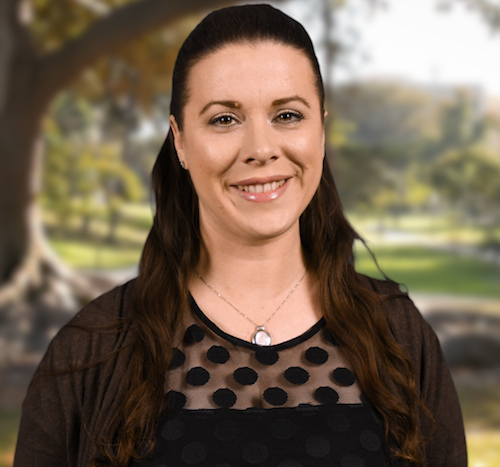Professor Renée Link created interactive chemistry teaching labs during the pandemic

Professor Renée Link, like many others at UCI, pivoted immediately to help students learn when the pandemic hit.
What happens when you have to close chemistry teaching labs but also equip students with the problem-solving skills of a chemist? Enter Professor Reneé Link and her team of graduate and undergraduate students, who designed and integrated a cutting-edge interactive learning platform into their remote chemistry labs during the COVID-19 pandemic.
Link grew up facing hurricanes in Florida, and so is no stranger to overcoming the hurdles of natural disasters. “The question was never ‘if a hurricane will hit’ – it has always been ‘how do we prepare for when it hits?’”
Link took the same approach when the CDC announced the outbreak of COVID-19: she started preparing.
Initially, Link recorded and uploaded lab videos for her classes. But she felt conflicted.
“As a student, you are not involved in the video, and the decisions are being made for you,” Link said. But “if you have to make your own decisions, you are going to be engaged differently. What’s the point of watching someone else separate a mixture? You need consequences to your lab-based choices to successfully teach students how to think like a scientist.”
So, Link communicated with other laboratory teaching professors on social media to get advice on how to better equip her students during the pandemic.
Dr. Marie van Staveren, an alumnus of UC Irvine, recommended Twine. Twine is “a low-cost, interactive alternative to passive learning that can be implemented in a remote delivery organic laboratory setting,” Link wrote in a recent paper in the Journal of Chemical Education that details how she first integrated the platform as the final experiment in a remote organic chemistry laboratory.
In the experiment, students purify a mixture with separate techniques, and the experiment evolves based on their choices. After assessing the positive outcomes of the interactive experiment, Link designed an entire organic chemistry lab course using Twine.
“The platform allows students to see real problems that occur in the lab and to make decisions based on them,” Link said. “For example, they could encounter errors based on improper set-up of the separation technique, and they are given the option to continue the experiment or start over. Additionally, you can integrate safety lessons into the activity that normally would not be practical – such as demonstrating to students the outcome of heating an ether as it would start a large fire.”
While interactive-learning platforms emerged in response to the COVID-19 lab closures, they could also be an answer to another problem: educational inequalities for black, indigenous and people of color (BIPOC) and first-generation students.
“COVID made this problem so glaringly obvious that people could no longer ignore it, as you could see which students still had to work during these times to support their families,” said Link.
“Remote learning allowed some flexibility for students to work on their own schedule,” Link continued. “This leads us to the question: ‘Do all students need hands-on laboratory experience?’ Not everyone has time because labs take up a lot of time. But then again, there are scientists who are scientists because of lab. There are no easy answers to this, but I think the key to making labs accessible for all students is to be flexible and to give students options.”
Teaching labs have since returned to in-person, but Link hopes to repurpose Twine in the future as a way to increase lab accessibility.
“Designing scalable yet accessible teaching labs is critical,” Link said. “However, we don’t need just cookbook labs where students simply just follow instructions, but labs that equip our students with the tools on how to design experiments and solve problems like a scientist.”
Brooke Carpenter is the Science Communication Fellow for the UC Irvine Department of Chemistry.
